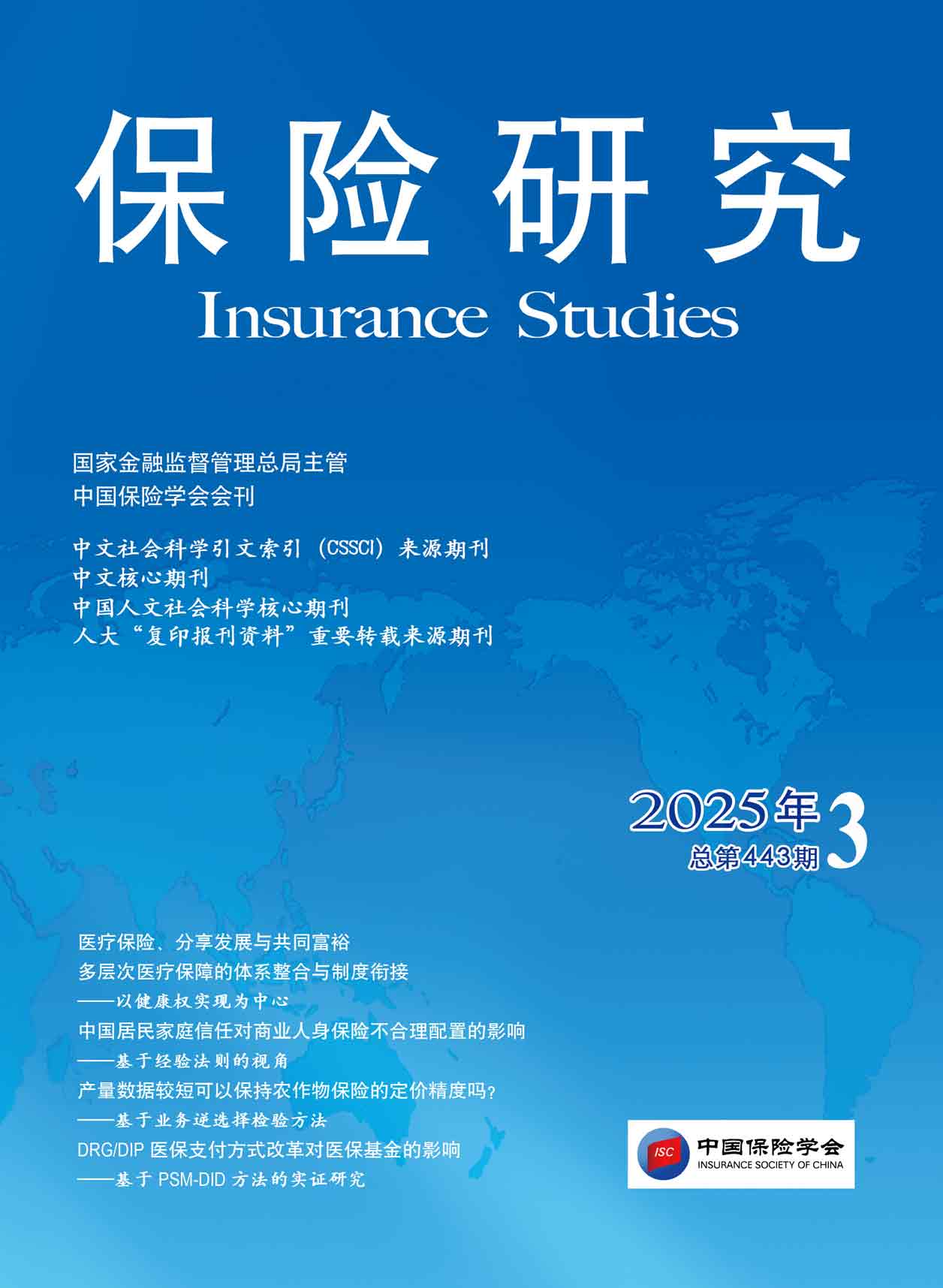
《保险研究》20250309-《对价平衡学说的溯源与省思——从德国Lexis原则与日本二大原则谈起》(江浩)
[中图分类号]D922.284;F804[文献标识码]A[文章编号]1004-3306(2025)03-0116-12 DOI:10.13497/j.cnki.is.2025.03.009
资源价格:30积分
- 内容介绍
[摘 要]对价平衡概念自1990年提出以来,经过德国Lexis原则与日本二大原则的补充与完善,逐渐形成了以风险共同团体为基础,以保险费与风险承担之间的客观平衡为核心的对价平衡学说,已然成为保险法学说与实务上的金科玉律。对价平衡的思想可追溯至1909年的Lexis原则,但由于学说与实务上皆服膺于对价平衡所表达的公平概念,而忽略了其以德国早期保险市场发展为理解基础的学说背景,以及保险经营原则的学说定位,进而未能发现该学说在理论应用上所未能考量的学说属性不同,以及以风险共同团体为保险制度基础的理解偏差,造成了保险经营原则对于契约关系的不当介入,此皆为对价平衡学说所须反思的问题。
[关键词]对价平衡;Lexis原则;二大原则;给付与对待给付均等原则;收支相等原则
[作者简介]江浩,台湾政治大学风险管理与保险学系法律组博士研究生。
The Origin of and Reflection on the Doctrine of Consideration Equivalence—Insights from the Lexis Principle of Germany and the Two Principles of Japan
JIANG Hao
Abstract:Ever since the concept of consideration equivalence was put forth in 1990,and then refined and supplemented with the Lexis Principle of Germany and the Two-Principles of Japan,the doctrine of consideration equivalence has become a fundamental principle in the insurance law and industrial practices.Grounded in the concept of the risk sharing community,it regards the objective balance between premiums and risks as the core.The origins of the concept can be traced back to the Lexis Principle of 1909.However,both the theory and practice have adhered to the fairness concept expressed by consideration equivalence,neglecting the theoretical background based on the early development of the German insurance market and the theoretical positioning of insurance operating principles.This oversight has led to a failure to recognize the differences between insurance science and insurance law that the doctrine has not considered in its application,as well as a misunderstanding of the insured community as the foundation of the insurance system.Consequently,this has resulted in an improper intervention of insurance operating principles in contractual relationships,which are issues that the doctrine of consideration equivalence needs to reflect upon.
Key words:consideration equivalence;Lexis Principle;The Two-Principles;Prinzip der Gleichheit von Leistung und Gegenleistung;Aquivalenzprinzip in der Versicherung
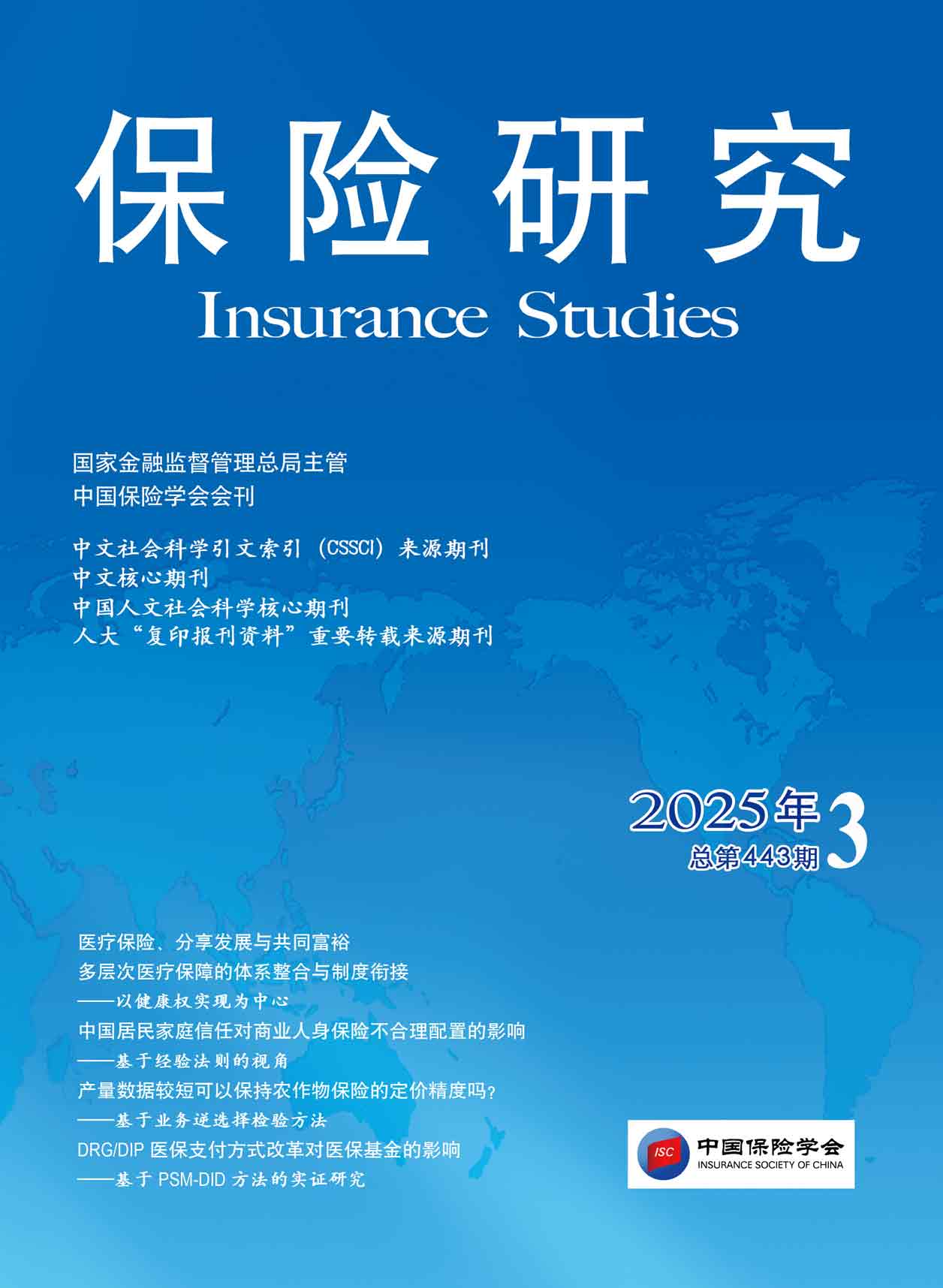
《保险研究》20250301-《医疗保险、分享发展与共同富裕》(崔靖茹、田玲、章成)
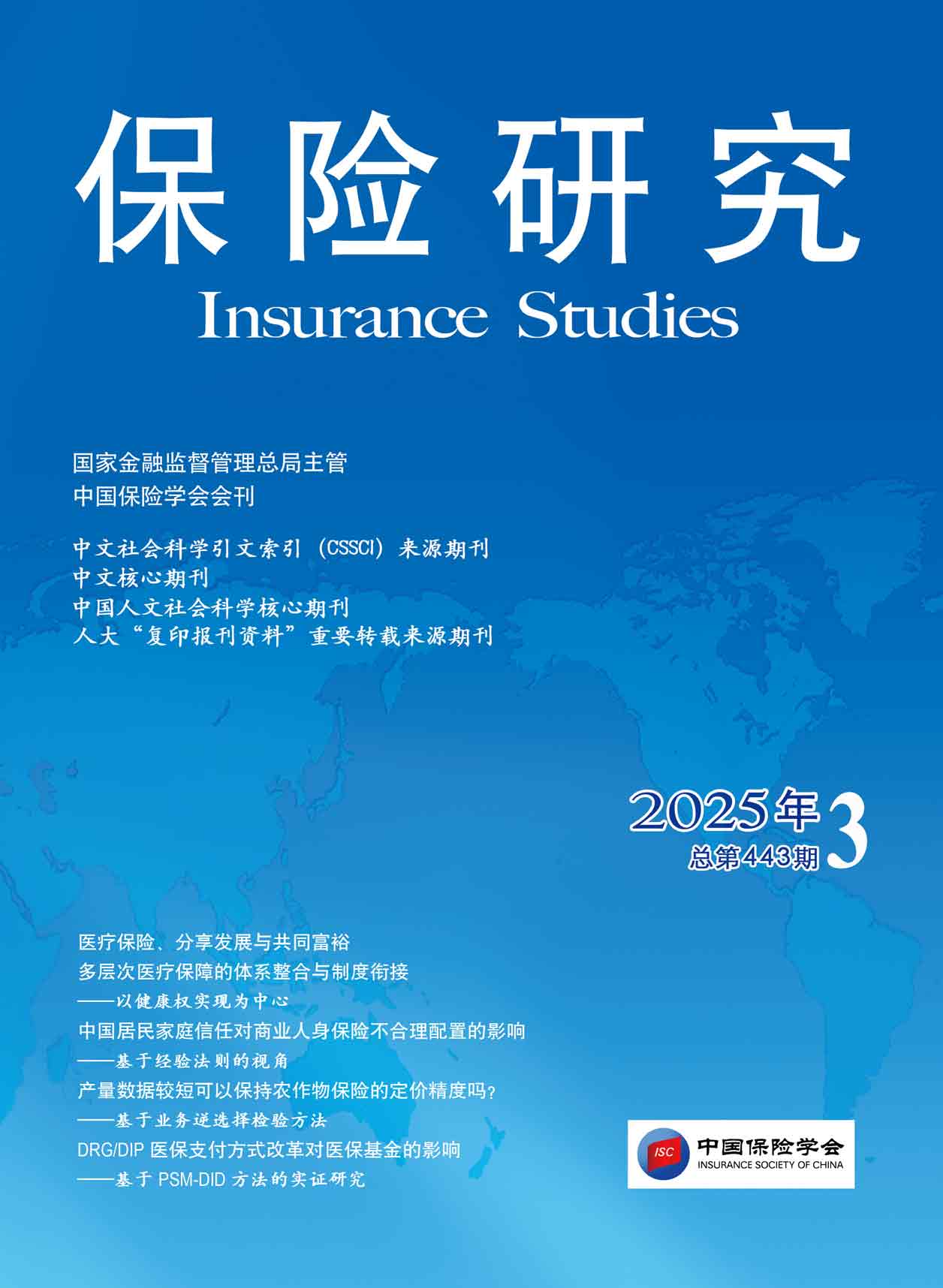
《保险研究》20250302-《多层次医疗保障的体系整合与制度衔接——以健康权实现为中心》(赵亚宁)
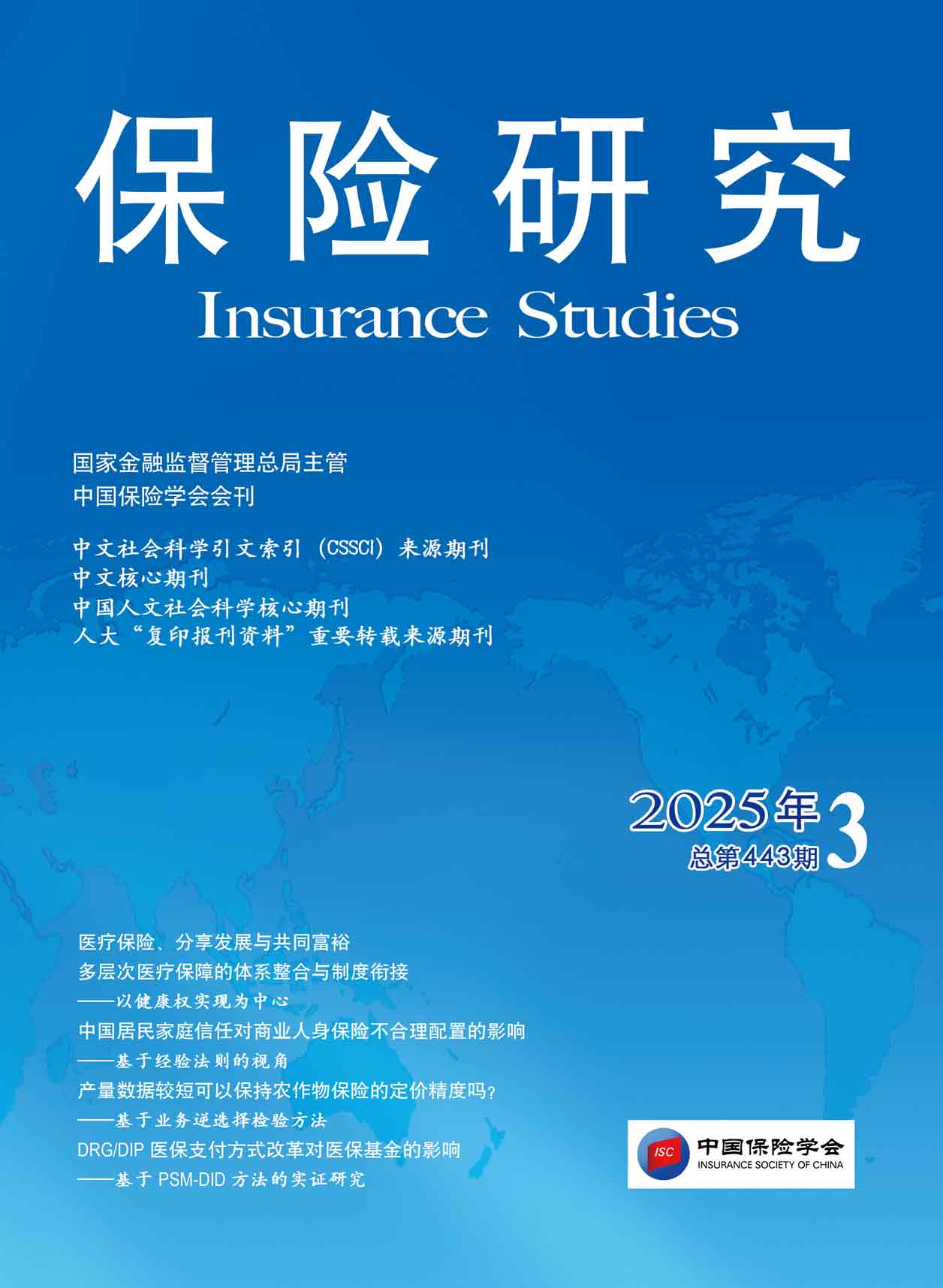
《保险研究》20250303-《中国居民家庭信任对商业人身保险不合理配置的影响——基于经验法则的视角》(王香珺、祝伟、姚树)
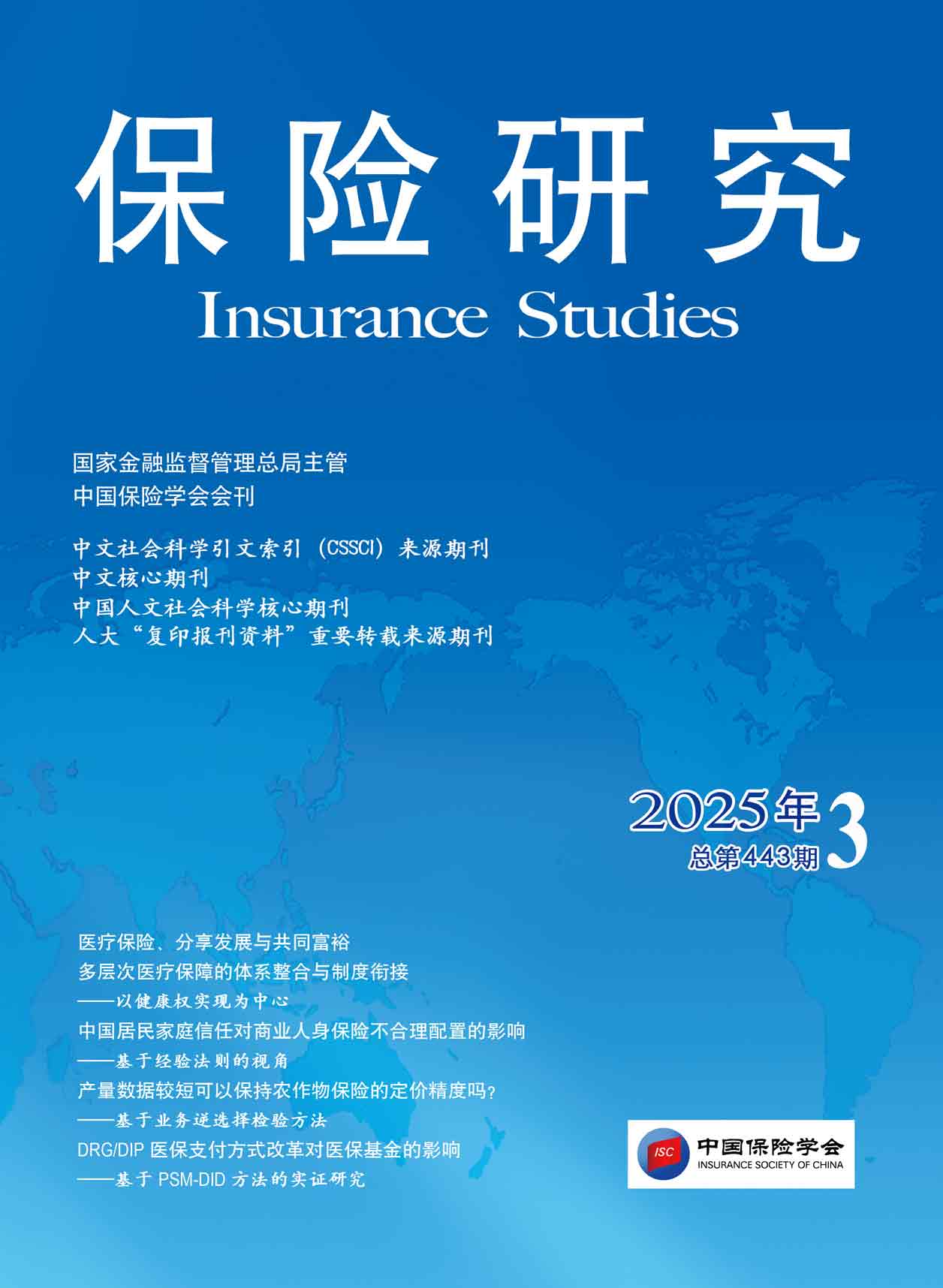
《保险研究》20250304-《产量数据较短可以保持农作物保险的定价精度吗?——基于业务逆选择检验方法》(肖宇谷、刘莉、赵艳霞、崔婷、申茜琳)
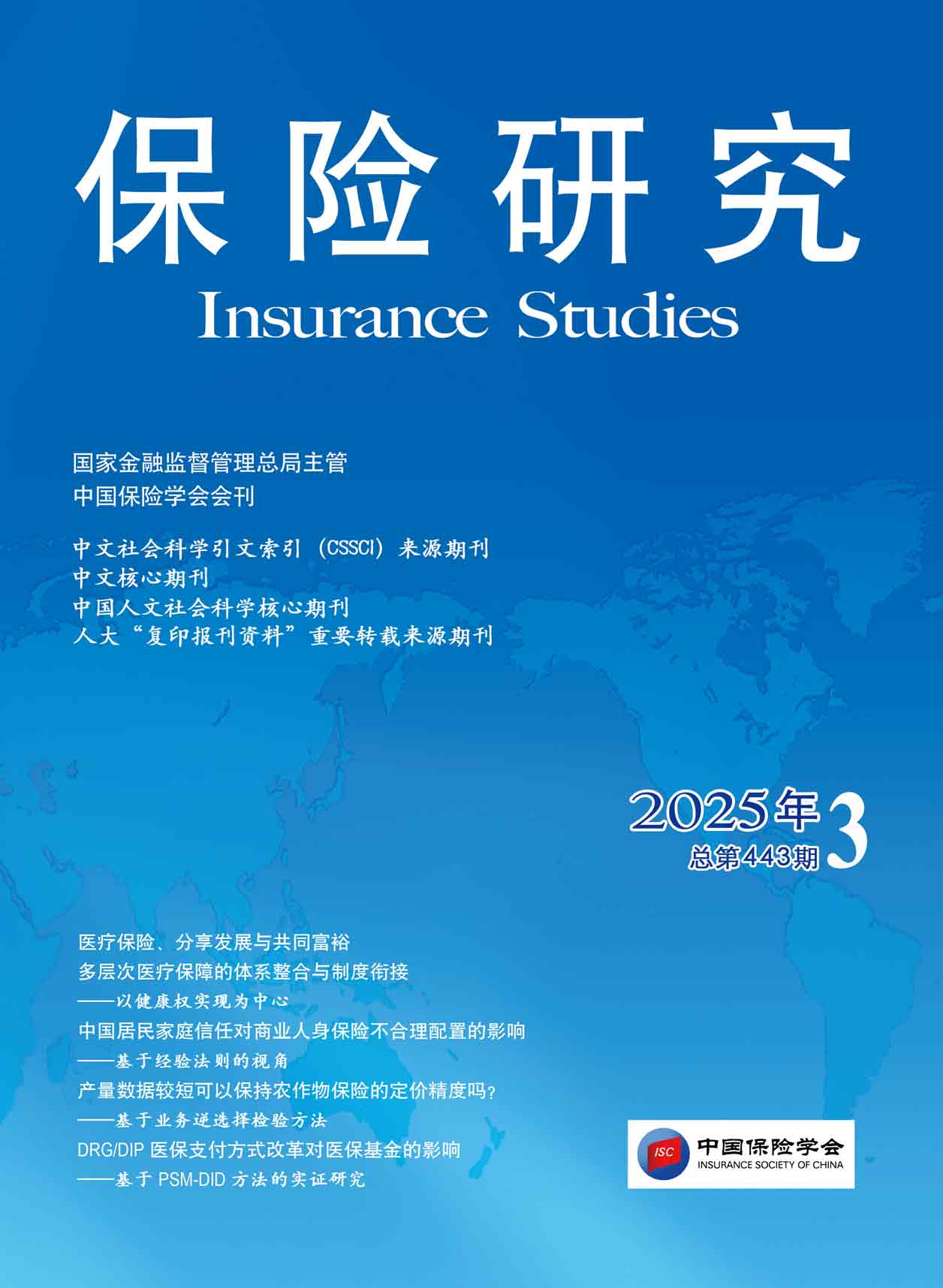
《保险研究》20250305-《绿色保险对经济社会发展方式绿色转型的影响研究》(任再萍、王欣、施楠)
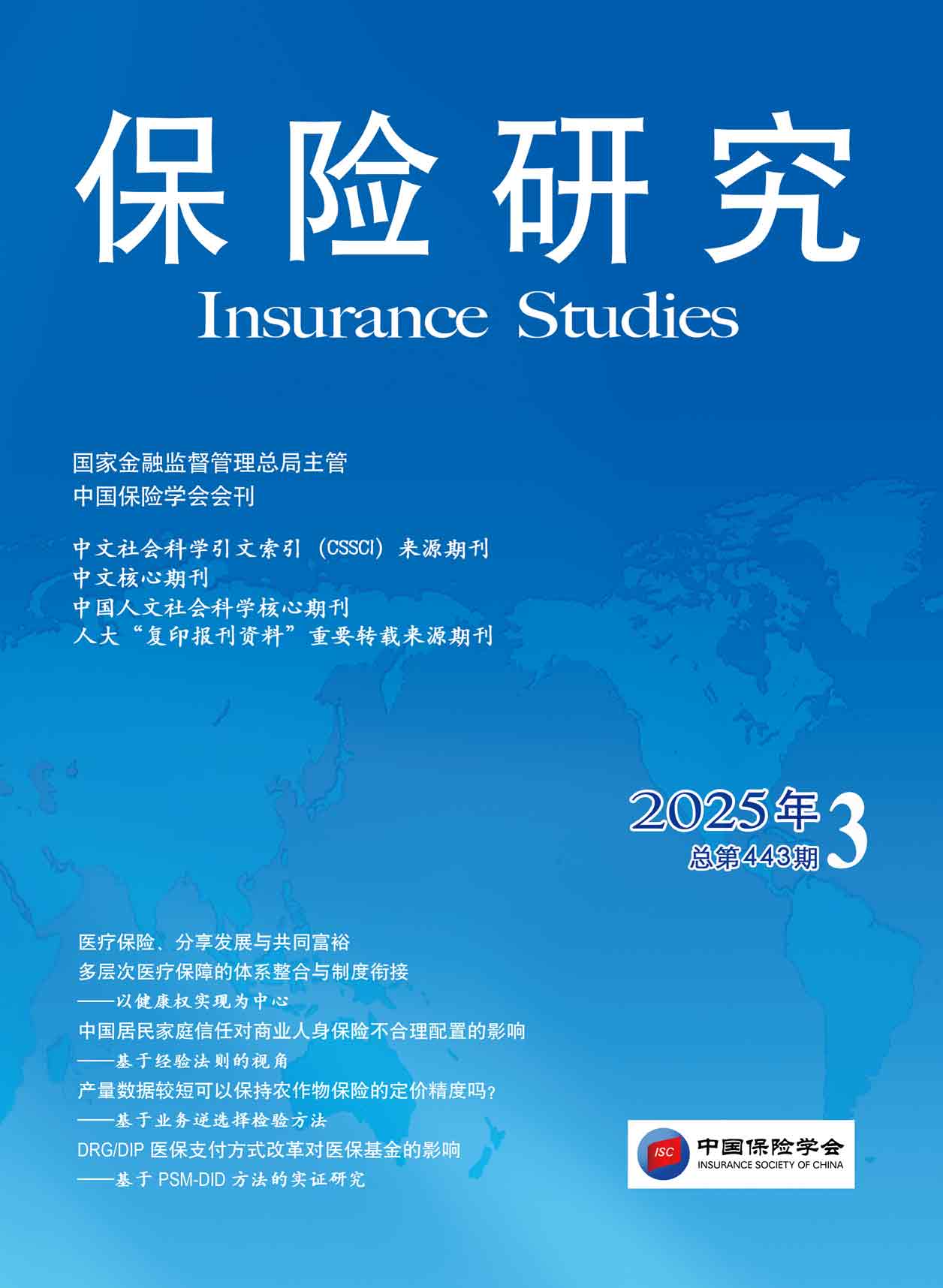
《保险研究》20250306-《城乡居民基本养老保险筹资和待遇调整机制的优化》(杨再贵、许鼎)
